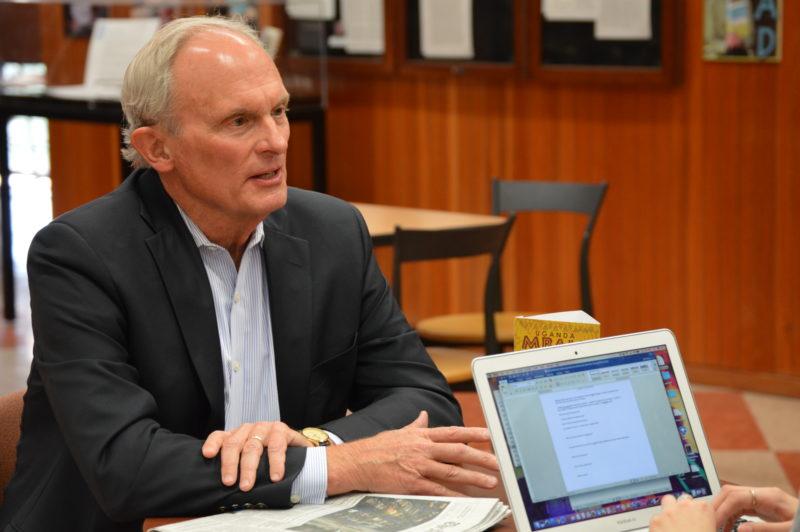Trinity University recently appointed Michael Fischer, professor of English, the first Janet S. Dicke Professor in Public Humanities. According to a Sept. 8 press release from the office of university marketing and communications, the university hopes the new distinction will reaffirm the importance of the humanities outside academia.
Fischer, who specializes in modern literary criticism, earned the distinction primarily through his service to the university.
“Fischer is a long-time member of the Trinity administration and faculty,” the press release reads. “Fischer was Trinity’s vice president for Academic Affairs from 2000 to 2016. In this role, he served as the University’s chief academic officer, providing leadership for student affairs, intercollegiate athletics, and undergraduate recruitment and retention. He also played a central role in the development of the Trinity Tomorrow strategic plan as one of the committee’s three chairs.”
As noted in the position’s title, this professorial distinction revolves around the public humanities. Fischer’s role will include advocating a more widespread understanding of what the disciplines that fall under this title will entail.
“I think the key part of the title is public humanities. The function of this position is for me to help bring the contribution of the humanities to a broader public and to reaffirm the value of the humanities to all of us,” Fischer said. “I think that what I most want to do is to help people outside the humanities understand what humanities majors do and appreciate their value “” I want them to see how important the values are and spread that appreciation. I love the humanities; I majored in English in college and have studied it my entire career. I’ve benefited from that so much, and I want others to benefit as well.”
Fischer returned to being a professor full-time in the fall of 2017. In addition to continuing his research, he also teaches HUMA, one of the first-year experience courses available to new students.
“I really enjoy the readings that go on in the humanities, as well as the discussions and thinking that goes on in different areas, such as history, philosophy and religion,” Fischer said. “I think it’s all really stimulating and interesting, and in addition to that, as a professor, I’ve noticed how the humanities help cultivate important skills, such as clear writing, careful reading and critical analysis. I think that these skills help people become better at whatever they’re going to major in, citizens and people.”
As with many of the other professorial distinctions, the salary, research and other elements with the special position are paid for by donors who wish to give back to the university.
“The Janet S. Dicke Professorship in Public Humanities is made possible by an endowment gift from James Dicke II ’68 in honor of his wife, Janet, a current member of Trinity’s Board of Trustees,” the press release reads. “An education advocate, Janet St. Clair Dicke ’68, is an active civic leader who has served on the Board of Trustees of the Academy at Ocean Reef, a private school in Key Largo, Florida. A former member of the Chi Beta Epsilon sorority, Janet graduated from Trinity with a Bachelor of Arts with a major in elementary education, and a teaching field in art.”
In addition to this title, Trinity has 16 other professorial distinctions that professors may earn. They all required something more than a typical associate professorship does.
“Distinctions are always named after the donor, and they’re usually assigned to a specific discipline or set of disciplines,” said Duane Coltharp, associate vice president for faculty recruitment and development. “Typically, someone who holds a distinction or endowment position will have a reduced teaching amount, and that’s because there’s the expectation of heightened scholarly output. These professors already have established scholarship, and they’re expected to keep that up, and sometimes do additional research.”







